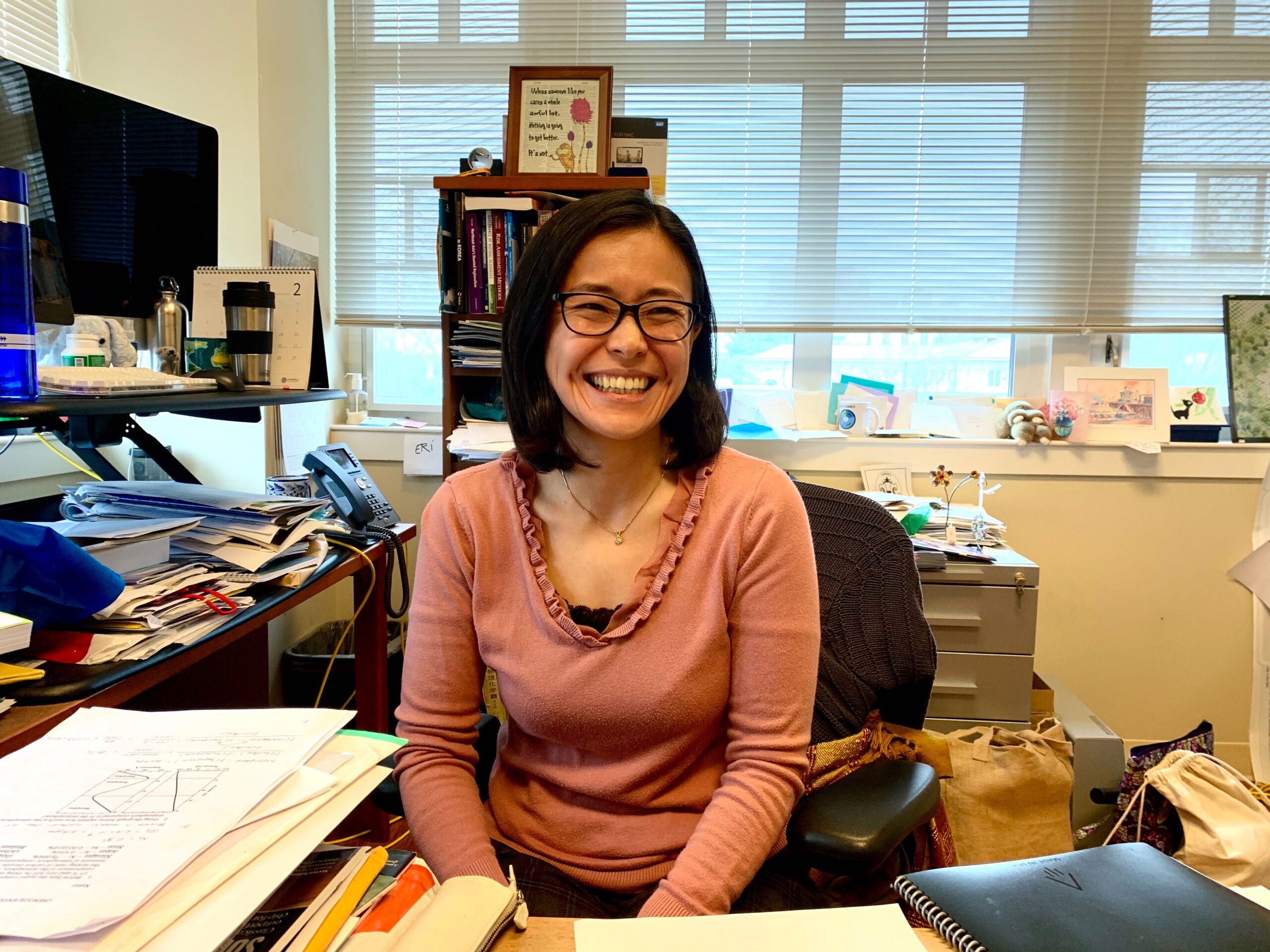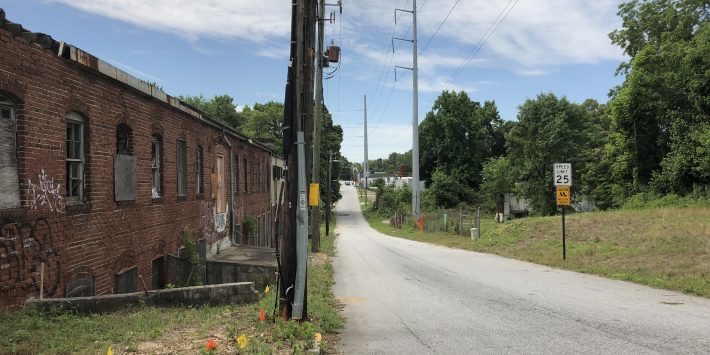Emory Researchers Knock On Doors Across Atlanta’s Westside To Warn About Lead Contamination

Emory professor Eri Saikawa talked Tuesday about research that sparked an EPA soil contamination cleanup throughout Atlanta’s westside neighborhood.
Lily Oppenheimer / WABE
The U.S. Environmental Protection Agency has been digging up soil contaminated with lead throughout Atlanta’s westside neighborhood.
The area being investigated spans across roughly 35 city blocks and covers more than 360 properties, according to an EPA spokeswoman.
But that federal investigation and soil cleanup was kick-started by an Emory University doctoral student in 2018 and a research team led by professor Eri Saikawa.

Their data showed elevated lead levels collected from soil samples, and the discovery of industrial smelting waste called “slag,” just sitting on several vacant lots near Elm Street.
Families have gardened and children have played in this soil for decades. And Saikawa says she’s listened to residents’ stories of watching kids climb on top of the waste, witnessing them treating it like a kind of slag playground.
Saikawa says while the EPA is currently taking the soil contamination seriously, she fears there isn’t enough funding, staffing and overall resources for the agency to tackle the scope of the problem.
“I am very taken aback in a way. My expertise has been in air pollution and emissions. And this was supposed to be a very small project that my then-Ph.D. candidate was going to work on,” Saikawa said.
“Now we found a problem that we think is extremely important and hasn’t been taken care of by other researchers.”
Saikawa sat down with “Morning Edition” host Lisa Rayam to discuss how her research team has started knocking on doors. That’s to make sure Atlanta residents are fully aware they could be exposed to lead contamination and to encourage them to get tested.
In a statement to WABE, the EPA said that 70 properties so far require cleanup, and it is planning to expand its study area by three residential blocks and is reaching out to the community.








